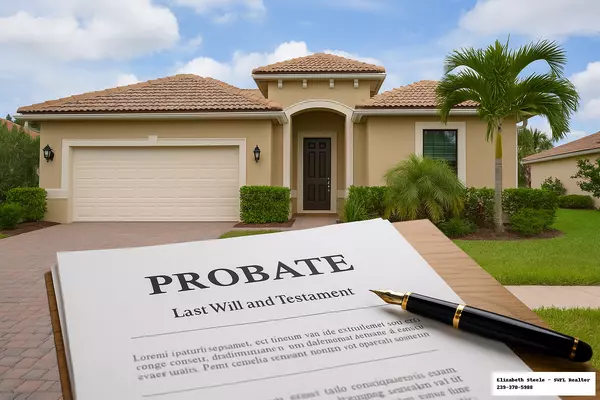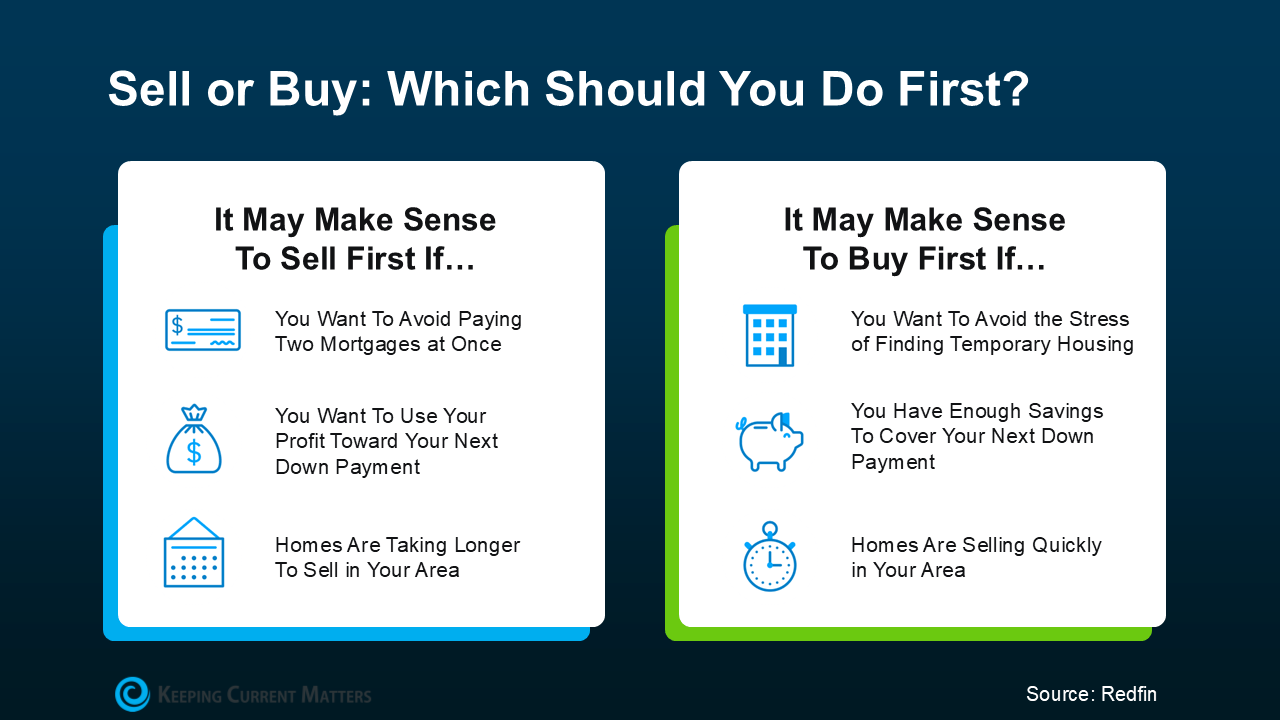How to Find Real Estate Comps
A correctly priced home attracts more buyers and spends less time on the market. If you're embarking on the home-selling journey, finding the right comparable sales (comps) is crucial to determining the best listing price and increasing the likelihood of a smooth sale.
We'll walk you through the process of finding real estate comps, including choosing the best comparable properties and using that data to derive a value for your home.

How Real Estate Comps Are Used
Buyers and sellers use real estate comps to estimate a home's market value. Accurate comps will provide information on the listing prices and recent sales prices of similar homes in the area.
When used correctly, that information can help determine a home's value, allowing the seller to set a competitive list price. A buyer might also review real estate comparables to help them understand what a home is worth before submitting an offer.
In either scenario, recent data is essential to understanding a home's value because property values change due to market conditions, such as the number of available homes for sale, the amount of time they spend on the market, and the pool of available buyers.
How Sellers Use Comps
Home sellers use real estate comps to determine the value of their property and set an appropriate listing price.
As you prepare to list your home, consult your real estate agent for comps to gain insights into the following criteria:
- List price: Sellers can set a competitive sales price by reviewing data on recently sold homes in the immediate area.
- Market conditions: Comps provide insights about the current real estate market for similar homes. This includes criteria like the number of days a home was on the market, its list price, and sales price.
- Counteroffers: Ideally, your comps include recently sold homes in the immediate area that closely match your property in size, age, and condition. This will help you negotiate with potential buyers and make a fair counteroffer.
- Property features: If a home has a unique feature, such as a pool, detached garage, or an accessory dwelling unit, the comps for properties with similar amenities can provide insight into the impact of those features on the sales price.
How Real Estate Agents, Lenders, and Appraisers Use Comps
Professional appraisers use real estate comps to formulate a fair market value, providing a broker price opinion (BPO), home appraisal, or comparative market analysis (CMA).
When lending institutions order a home appraisal, a professional appraiser looks at real estate comps as part of the process. This helps the lender confirm a property's value before underwriting a new loan.
An appraiser typically follows these three steps when valuing a home:
- Three to five comps are selected. They should be as similar to the home they are appraising as possible. Location, home size, the number of bedrooms and bathrooms, lot size, condition, age, and any unique features are all considered when selecting comps for a home.
- The sales prices for comps are adjusted. This is done to balance out any differences between the best comps for the home that is being appraised. For example, if a comp has an additional bathroom, the appraiser might reduce the sale price to account for the difference.
- The adjusted sales prices for the comps are averaged to determine the estimated market value of the appraised home.
How Buyers Use Comps
Buyers use real estate comps to make informed offers and ensure they are not overpaying for a property. A buyer may also review comps to understand current market conditions and ensure they submit a fair offer.
Online Resources to Find Comparables
Many homeowners use valuation estimates from real estate websites to determine what their home might be worth. These estimates will give you a general idea of what your home is worth. "It's just a ballpark," says Elizabeth Steele with Realty One Group MVP.
Elizabeth says, "These tools effectively pull data on sold homes "but can't take into account the home's condition, the amenities or upgrades, or possible inaccuracies in public data."
Review each comp carefully to ensure that it accurately matches your property. The home's condition may be better or worse than yours, or it may be made of a different construction material, which matters. The values of brick homes, concrete block homes, and wood homes may vary, depending on your area and buyer preferences.
You should also review each comp's location to ensure it is within your neighborhood. Many online tools will pull from a one-mile radius. However, in some real estate markets, a two- or three-block difference can significantly impact a home's value.
The best way to get an accurate valuation on a home is to work with a local real estate agent or get a formal appraisal. Real estate professionals have experience analyzing and choosing the best comps subjectively.
They also have access to the Multiple Listing Service (MLS), which has a more extensive database of real estate listings.
Public Records and Real Estate Comps
Before real estate data was available online, agents had to scour through records at the County Assessor's Office or the local courthouse. These agencies are responsible for keeping property sales records, including assessments and tax information on historical property records.
Today, the most critical public records information for analyzing real estate comps is populated in online listings. This data includes the home's age, square feet, lot size, and construction material on the property profile.
It's wise to double-check the public property records data by going to your county's property appraiser website and entering the property address. The information available there should include:
- Current ownership data
- Lot size and property boundaries
- Square footage of the home
- Zoning information and property type
- Past permits and improvements
- Number of bedrooms and bathrooms
- Appraised value, according to the tax assessor or property appraiser
- Sale history, including the last sold date and sold price
Some property appraiser websites will have a comparable home tool, which shows nearby homes that sold in the last 30 to 90 days. However, these tools do not account for specific home features, making it difficult to assess whether the property is comparable.
How to Analyze Real Estate Comps
Location is by far the most important factor when analyzing comps. You don't want to use a home as a comp for yours if it is outside the immediate area, even if it looks exactly like your current home.
The goal is to find the properties most similar to your home and within the immediate area. As your real estate agent analyzes comps, they will consider these factors for each comp:
- Location
- Proximity to amenities
- Type of house
- The home's age
- Construction materials
- Number of bedrooms and bathrooms
- Square feet
- Lot size
Your agent will also review the home's condition, including upgrades, recent remodels, amenities, and features.
As your real estate agent performs a comparative market analysis, they will look for similar property types in the immediate area or a like-for-like neighborhood. "If the house is a colonial, I'm going to try to find colonials, not a rancher or Cape Cod home," Howell says. "Then, I'm looking at bedrooms, bathrooms, square footage, and lot size."
If he can't find the exact home style in the immediate area, Howell will look at property features next. He may include different styles of homes but will adjust his estimated value based on those comps.
The home's condition also plays a significant role. Elizabeth Steele wants to find comparable homes with similar features, such as a deck, new roof, updated kitchen, or a well-manicured backyard with an outdoor fire pit.
Typically, you want comparable properties within five to 10 years of your home's age. The comps should be made of the same building material and home style. They should also have the same number of bedrooms and bathrooms, a similar lot size, and square footage.
Finding an exact match can sometimes be challenging, but you want the comps to be as close as possible.
Elizabeth tries to find three or four real estate comps that sold within the last six months. He also looks for one or two active sales and pending sales. This helps you see your competition and understand what's currently selling.
From there, Elizabeth averages the recent sales and listing prices to determine a home's value. A formal appraisal can present this as a range or a set value.
For a free Home Valuation, visit Sell My Home, call/text 239 370 5988, or email:esteelerealestate@gmail.com
Categories
Recent Posts











